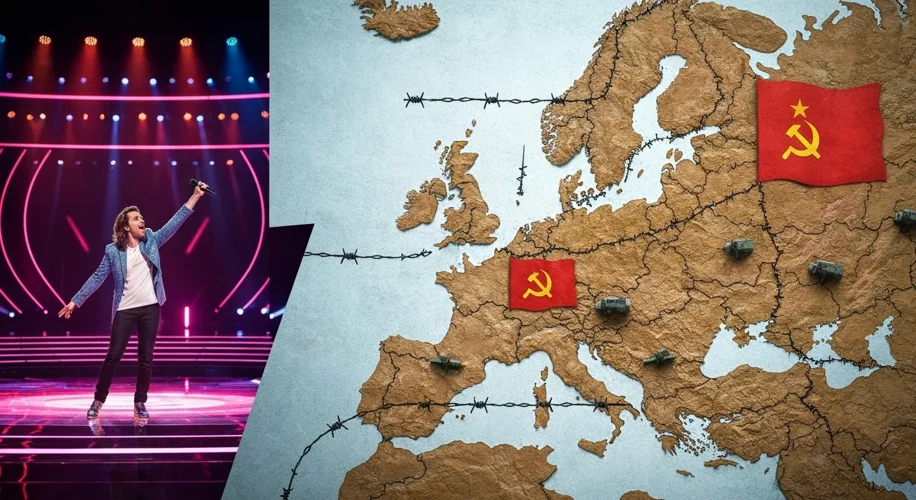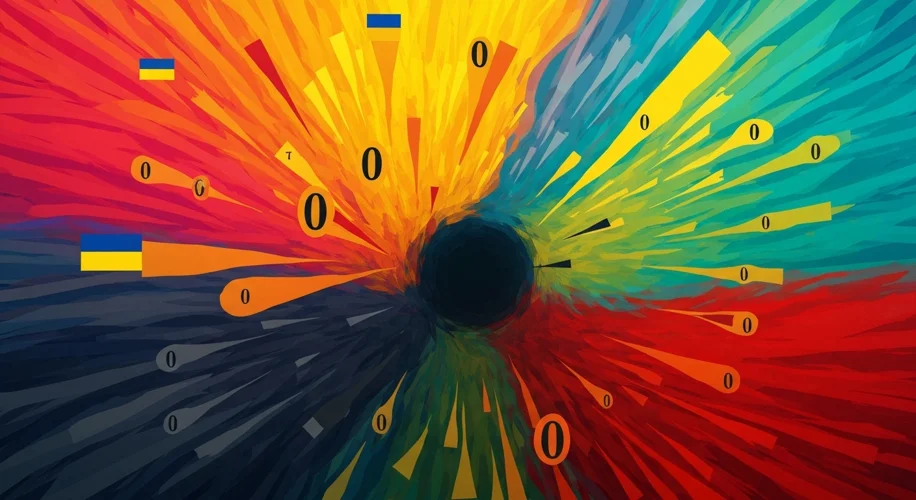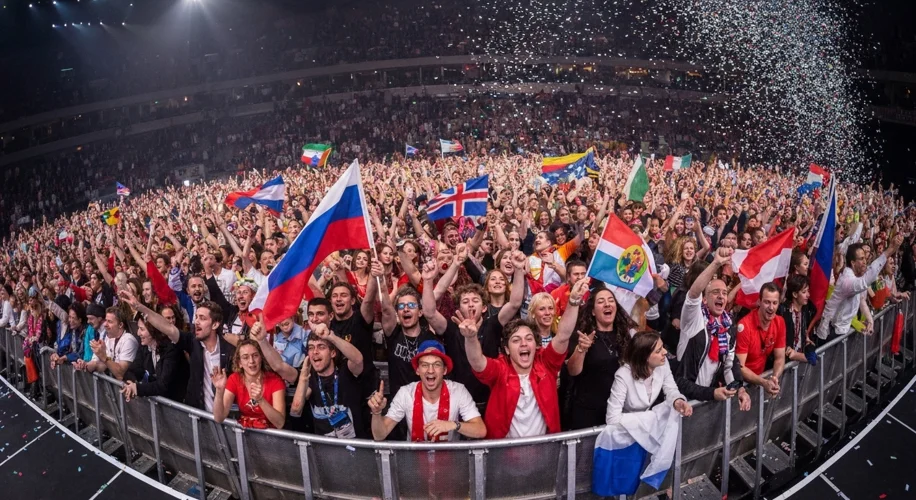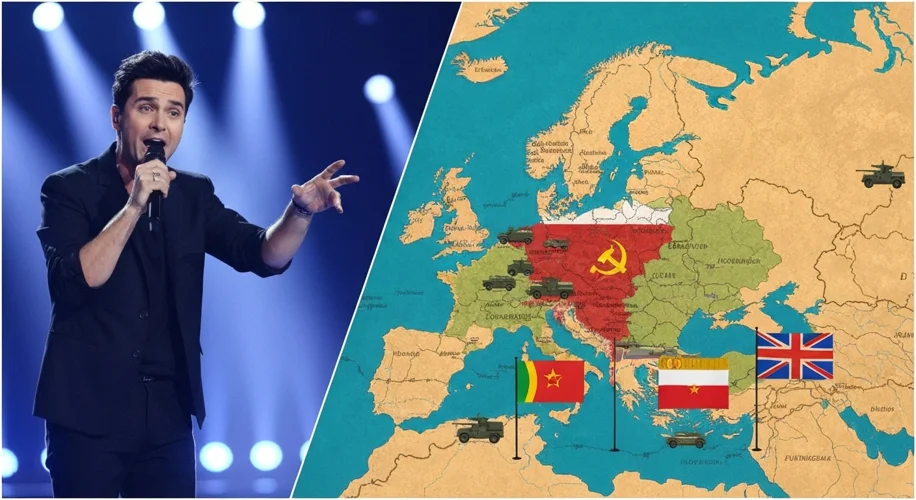The Eurovision Song Contest. For many, it conjures images of flamboyant costumes, soaring ballads, and an almost mystical ability for even the most politically neutral nations to award each other douze points. Yet, beneath the glitter and the catchy melodies lies a history deeply intertwined with the currents of international relations, a stage where national pride, political tensions, and even outright boycotts have played out with dramatic flair. While it may seem a modern phenomenon, the seeds of Eurovision’s geopolitical significance were sown early in its history.
Born from the ashes of World War II, the Eurovision Song Contest, or the Grand Prix de la Chanson Européenne as it was first known, was conceived in 1956 by the European Broadcasting Union (EBU). The idea was simple yet profound: to foster unity and cooperation among a continent still reeling from conflict. It was a musical embodiment of the burgeoning European integration, a shared cultural project designed to bridge divides. The early years were characterized by a spirit of camaraderie, with nations sending songs that celebrated peace, love, and a shared European identity.
However, the Cold War cast a long shadow, and it wasn’t long before the contest began to reflect the ideological chasm dividing East and West. While Eastern Bloc countries were largely absent in the early decades, their eventual participation, particularly after the fall of the Iron Curtain, often brought a fresh wave of political undertones. The very act of competing, of being represented on a European stage, became a subtle assertion of national identity and sovereignty, especially for nations that had experienced periods of foreign occupation or domination.
One of the most potent examples of politics influencing Eurovision’s narrative occurred in 1974. Ireland, then a small nation navigating complex relations with its larger neighbor, sent the iconic band The Swarbricks with the song “Do You Wanna Dance?”. The song itself was innocuous, but the political climate in Ireland was anything but. The Troubles, a period of ethno-nationalist conflict in Northern Ireland, was at its height. While not a direct boycott, the cultural context made the very performance a statement. The subsequent year, 1975, saw a rather unusual situation. Spain, under the authoritarian regime of Francisco Franco, was poised to win with the song “La, la, la” by Massiel. However, the EBU faced a dilemma: Franco’s regime was notorious for its human rights abuses, and many countries were uncomfortable with the idea of a victory that could be interpreted as an endorsement of the dictatorship. The controversy, however, did not lead to a boycott or disqualification. Instead, it highlighted the complex dance between cultural exchange and political ideals.

The 1980s saw further geopolitical ripples. In 1983, Israel faced a rather unsettling situation when its entry, “Chai” by Ofra Haza, was seen by some as a commentary on the ongoing Israeli-Palestinian conflict. While the song was officially about life and joy, its powerful themes resonated with the wider political tensions in the region, leading to a heightened sense of national significance around its performance.
Perhaps the most direct political boycotts, however, occurred in the late 1990s and early 2000s. In 1998, Azerbaijan’s planned participation was delayed due to political tensions with Armenia, a recurring theme that has seen both nations frequently assign each other the lowest possible scores, often perceived as a subtle form of diplomatic protest. The year 2009 brought a significant controversy when Russia, the host nation, attempted to send a song titled “We Are the Winners” by the band Pussy Riot, which was widely seen as a satirical jab at political authorities. The EBU ultimately rejected the song, citing its political nature, demonstrating the delicate line the contest treads between artistic expression and political neutrality.
More recently, the Eurovision Song Contest has continued to serve as a barometer of international relations. The ongoing conflict between Russia and Ukraine has profoundly impacted participation, with Russia being excluded from the contest in 2022 following its invasion of Ukraine. Ukraine’s subsequent victory that year with the song “Stefania” by Kalush Orchestra, a powerful anthem that blended folk tradition with wartime resilience, was a poignant reminder of the contest’s ability to reflect and amplify the collective emotions of a nation and, indeed, a continent. The overwhelming public vote for Ukraine was a clear message of solidarity that transcended the usual scoring quirks of Eurovision.

The Eurovision Song Contest, therefore, is far more than just a celebration of music. It is a unique historical artifact, a mirror reflecting the ever-shifting landscape of European, and increasingly global, politics. From its idealistic origins as a peace-building initiative to its role as a silent commentator on international disputes, the contest has consistently demonstrated that in the complex tapestry of human affairs, art and politics are often inextricably linked. The songs may change, the costumes may become more outrageous, but the underlying currents of national identity and geopolitical sentiment continue to flow, making Eurovision a fascinating, if sometimes controversial, stage for the world’s political drama.


